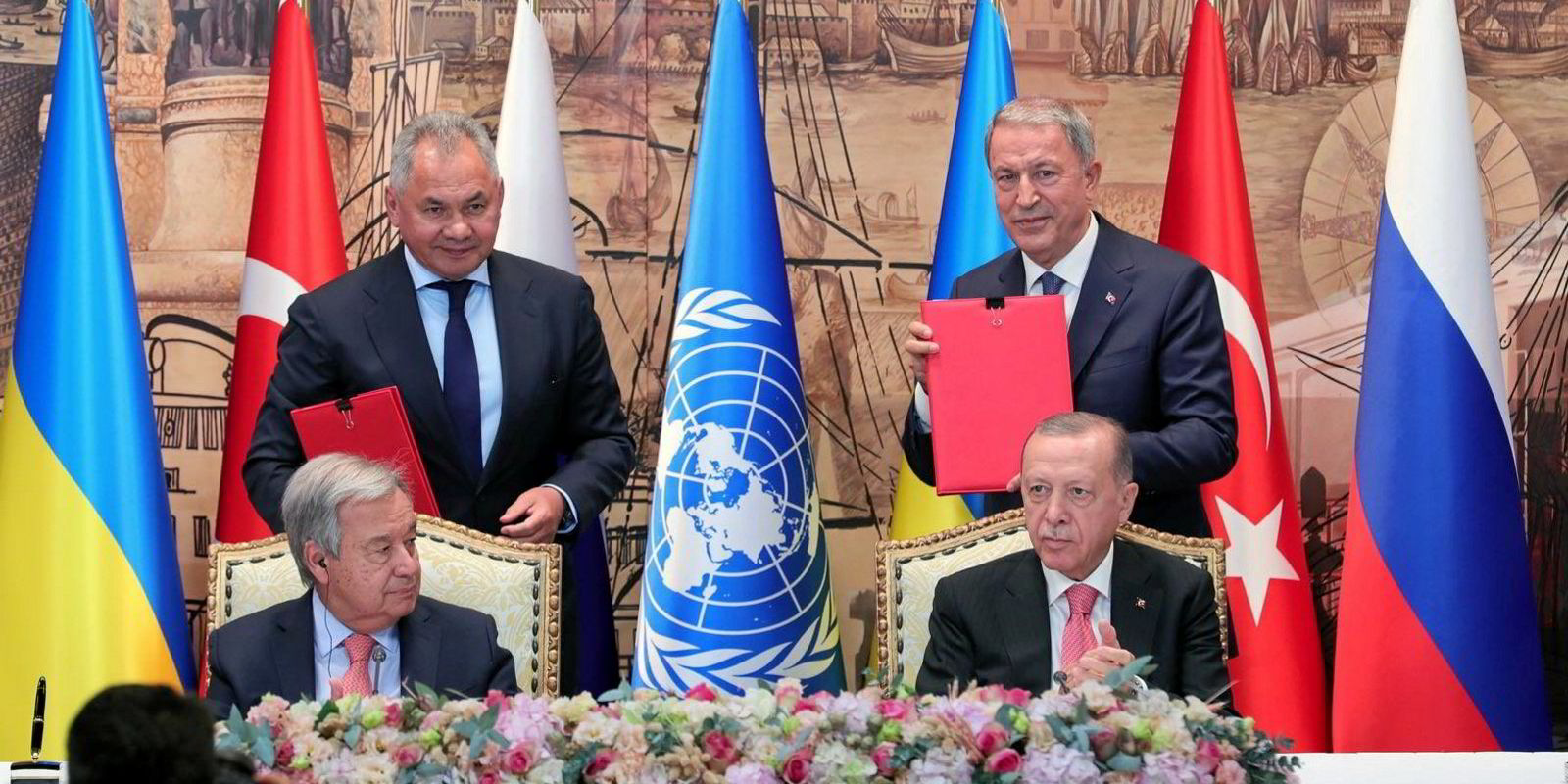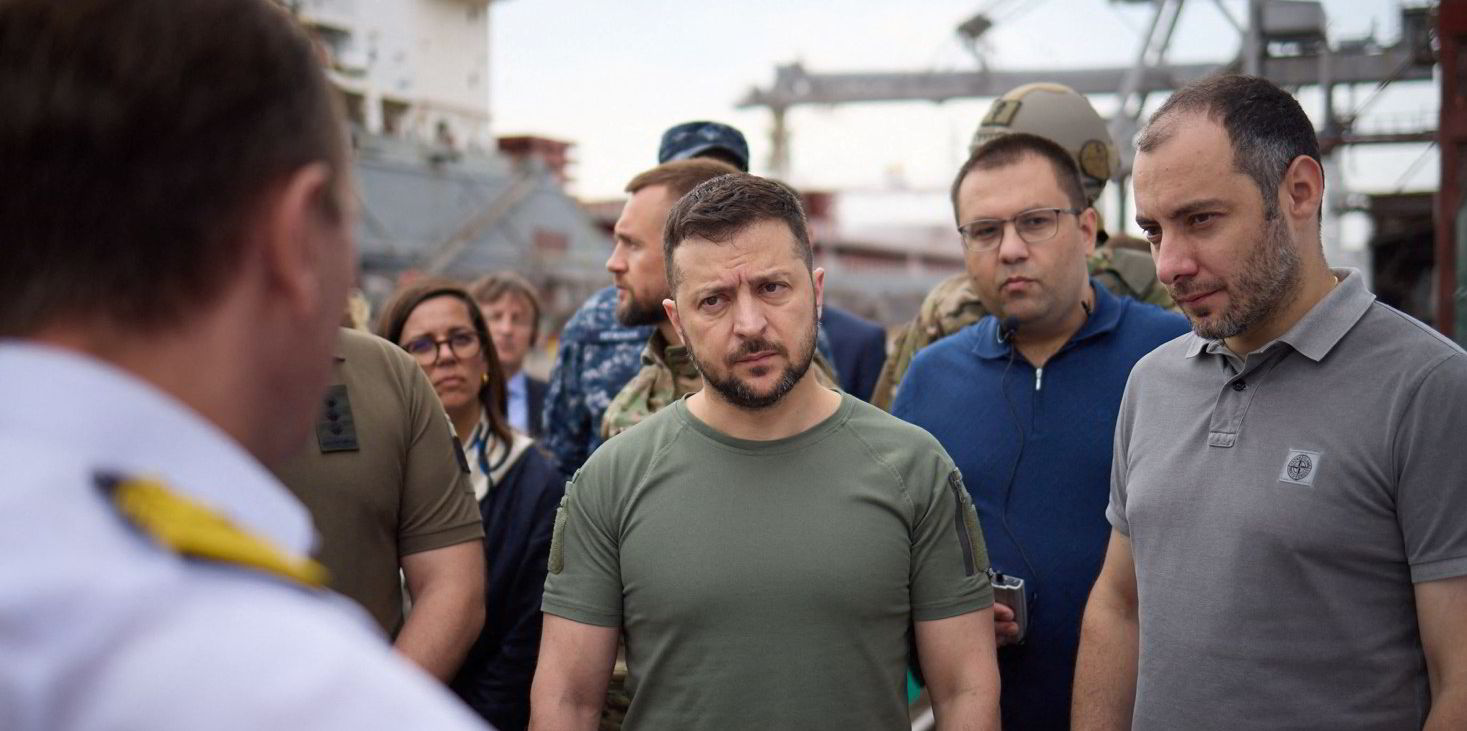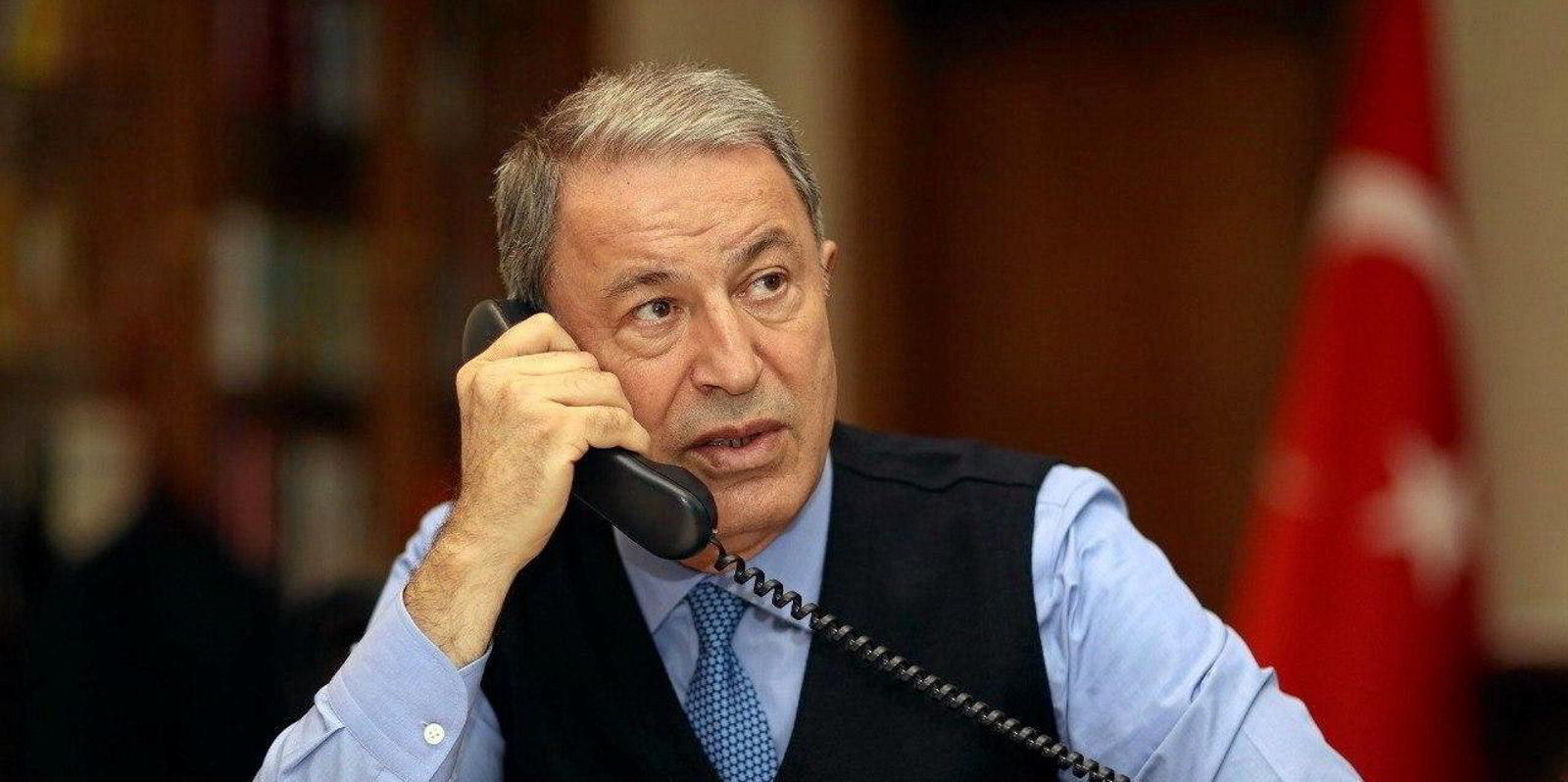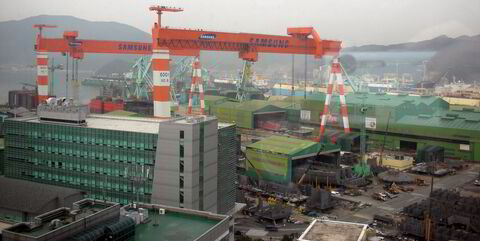The already questionable future of a UN-led scheme for the seaborne export of Ukrainian grain has received a further blow.
Officials in both Russia and Ukraine confirmed on Wednesday that an onshore ammonia pipeline running through Ukrainian territory was attacked two days ago.
The Togliatti-Odesa pipeline has been inactive since war between the two countries erupted last year and its reactivation has been a key condition by Moscow to continue supporting the Black Sea Grain Initiative (BSGI).
The blast took place in the village of Masiutivka near Kupyansk, right on the frontline in the largely Russian-occupied Ukrainian province of the Donbas where clashes were reported this week.
Even though no evidence has been produced to show that the pipeline was deliberately attacked, Russian foreign ministry spokeswoman Maria Zakharova was quick to blame Ukraine for the “explosion” as part of Kiyv’s brinkmanship to thumb its nose at Moscow.
Kiyv “just eliminate[d] the physical possibility of supplying ammonia to world markets,” Zaharova said in a message on the Telegram messaging service.
On the other hand, the Ukrainian governor of the Kharkiv region said it was Russian forces who shelled the pipeline and that no leakage was recorded from it.
A rapidly deteriorating climate
The fate of the Togliatti-Odesa pipeline and the BSGI are tightly connected.
Seeking to pressure Ukraine into reactivating the pipeline and allowing Russia to export ammonia, a key component of fertiliser, Russian BSGI inspectors in Istanbul have been refusing to clear vessels headed for Yuzhny/Pivdennyi — one of three ports covered by the BSGI since the initiative got up and running in August last year.
The pipeline’s resumption has been one of several conditions posed by Russia in both March and May, when Moscow reluctantly agreed to extend the BSGI for short spans of two months.
Russia justifies its stance by arguing that when the BSGI was launched last year, the UN pledged to help Russia soften Western financial and other sanctions, thus facilitating its own agricultural exports alongside Ukraine’s.
Despite these assurances, however, no ammonia has been transported under the BSGI so far.
Ukraine, on the other hand, accuses Russia of just seeking a pretext to put an end to the initiative.
Kiyv has been already accusing Russia of dragging its feet in clearing inbound BSGI vessels. The pace of ship approvals has markedly slowed down since the deal’s latest extension in mid-May.
According to UN data, just three vessels have been cleared through the BSGI’s Joint Coordination Centre (JCC) in Istanbul so far this month.
Relations between Russian staff and others at the JCC seem to have reached a nadir.
Moscow officials claim they are picky about ships because they want to prioritise shipments to developing countries.
Such arguments probably annoy some of the other BSGI inspectors from Ukraine, the UN and mediator Turkey.
According to Russian bloggers “UN inspectors [are]… throwing ID-cards of ships’ crew in the face of the Russians, forcing them to register a ship here and now, because they said so”.
Ukraine has been working for months on an alternative scheme to export its own grain by sea, without Russian approval.
In defiance, Russian officials have been urging Ukraine and its Western allies to export Ukrainian grain by land and said that if the BSGI perishes, Moscow will separately organise its own grain exports to Africa and other needy countries.
The humanitarian value of last year’s Istanbul agreements “is depreciating before our eyes,” Zakharova said on Wednesday.
‘Don’t know what happened…’
In his daily briefing in New York on Wednesday, UN spokesman Stephane Dujarric declined to directly comment on the issue.
“We’ve seen the reports, we’ve seen the counter-claims as to what happened… we have not received any official information,” he said.
At the same time, Dujarric stressed the importance of Togliatti-Odesa.
“Any threat to this pipeline is indeed of concern,” Dujarric said, adding: “We’re continuing to engage with the parties on the ammonia exports regardless of what may have happened”.
Freshly re-elected Turkish president Recep Tayyip Erdogan plays a key part in these deliberations.
On Wednesday, Erdogan spoke on the phone with both Russian president Vladimir Putin and the latter’s counterpart and opponent Volodymyr Zelenskyy from Ukraine.
“President Erdogan… expressed that he regards it to be beneficial to continue consultations with the UN to remove obstacles to the export of Russian grain and fertiliser,” the Turkish president tweeted.





